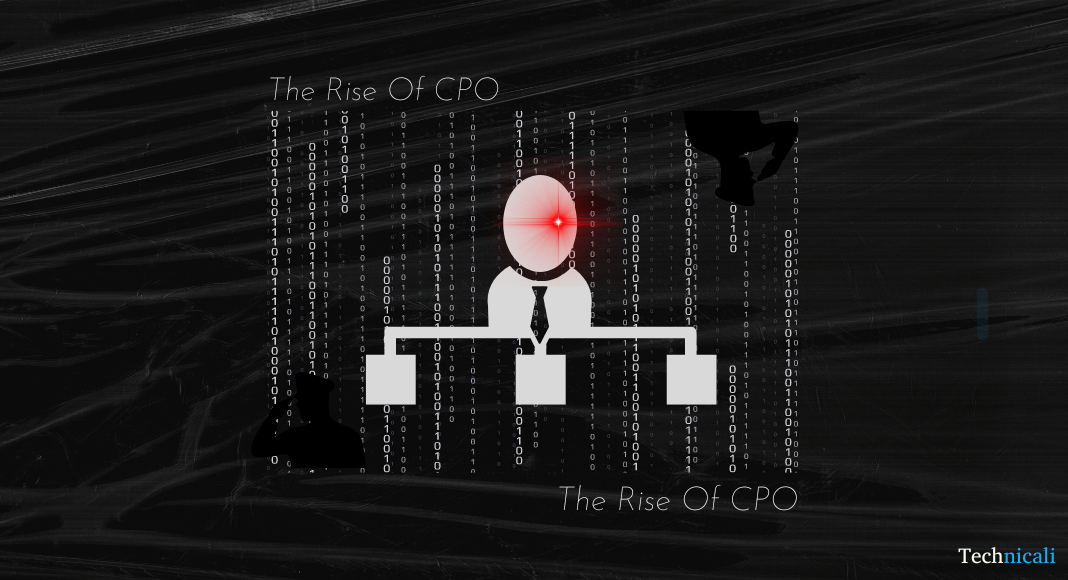You are the head of a project management office in a large organization. You have been in your position for many years and have seen the CPO’s role evolve. In the early days, the CPO was more like a project sponsor, working closely with individual project managers to ensure that projects were completed on time and on budget.
However, as the role of the CPO has evolved, they have come to play a much broader role in the organization.
The CPO is now responsible for developing and implementing a project-driven structure across the organization. They also work to create a collaborative and empowering culture that reaches across silos. And finally, they must ensure that project management competencies are developed throughout the organization. This is a tall order, but it can be extremely beneficial for an organization.
If your organization is considering hiring a CPO, there are several things you should keep in mind.
In this article, we’ll take a closer look at the benefits a CPO can bring, discuss their rise and understand whether your organization needs a CPO; then, we will learn what the hiring process looks like.
By the end, you’ll have a good idea of whether or not a CPO is right for your organization.
So let’s get started!
Contents
- 1 What and Who is a Chief Project Officer (CPO)?
- 2 What are CPOs’ Responsibilities, and What do they offer?
- 3 But Why are CPOs Becoming more and more common in Project Management?
- 4 How do you become a CPO?
- 5 How do you know if your organization needs a CPO?
- 6 How to Hire a CPO
- 6.1 Define the role and responsibilities of the CPO position:
- 6.2 Write a job description that includes the skills and experience required.
- 6.3 Post the job on online job boards and social media sites
- 6.4 Reach out to project management associations and networks
- 6.5 Conduct interviews with a panel of experts.
What and Who is a Chief Project Officer (CPO)?

A Chief Project Officer is a senior executive of a governance and management system who oversees all project activities within an organization. The role goes far beyond the sponsorship of individual projects and project managers.
CPOs also play an important role in times of change. When an organization is undergoing a transformation, the CPO can help to ensure that all projects are aligned with the new vision. This can be critical for ensuring that the organization remains focused and efficient during times of upheaval. The Chief Project Officer reports directly to the Chief Executive Officer and is responsible for pushing the organization towards adopting a project-driven structure.
What are CPOs’ Responsibilities, and What do they offer?

The responsibilities of a CPO also include ensuring that project management activites are developed in the organization. This can help to create a more cohesive project-friendly culture that shares best practices and learns from each other.
CPOs offer a number of benefits to any organization, chief among them are the ability to:
- Pushing the organization towards adopting a project-driven structure
- Fostering a collaborative and empowering culture across silos
- Ensuring that project management initiatives are developed throughout the organization.
- Reporting directly to the CEO
- Overseeing all project activities within an organization
- Managing projects from start to finish along with project managers
- Assisting and approving project plans and timelines
- Assigning tasks to project team members
- Tracking project progress and milestones
- Communicating project updates to stakeholders.
CPOs help organizations in several ways, including:
- Developing a strategic alignment vision for the organization’s project management function
- Leading the development and implementation of project management processes, practices, and tools across the organization
- Defining roles and responsibilities for project management staff and teams
- Building organizational capability in project management through training and development programs.
But Why are CPOs Becoming more and more common in Project Management?

One reason is that technology has made it easier for people to work remotely. As more and more people start working from home, the need for a centralized leader for all project-related activities becomes increasingly important.
Another reason is that the traditional hierarchical structure of organizations is becoming less common. In its place, a more flattened structure is emerging where people are empowered to take the initiative and be more innovative. In this environment, CPOs can help ensure that projects are properly aligned with the organization’s strategic objectives.
The role of the CPO has been evolving as project management itself has become more complex. As organizations have realized the importance of managing projects effectively, they have also realized that they need someone solely dedicated to overseeing all aspects of the project management function.
Finally, the role of the CPO has been growing in response to the increased scrutiny organizations face from shareholders and other stakeholders. In today’s business environment, organizations must be able to demonstrate that they are using their resources effectively and efficiently. The CPO is uniquely positioned to provide this visibility and assurance.
There is a misconception that the chief project officer is the same as a project manager; it’s not. A project manager is someone who is responsible for the day-to-day management of project performance. They work with the project team to ensure that tasks are completed on time and within budget. A CPO, on the other hand, is responsible for overseeing all projects within an organization and ensuring that they are aligned with the organization’s strategic objectives.
The CPO is the boss of a project manager. They help and empower project managers. It’s the Highest position in PM. A project manager is responsible for reporting to the CPO. And the CPO to CEO.
How do you become a CPO?

There is no one specific path to becoming a CPO. However, most CPOs have extensive experience working in the project management office and have held senior-level positions within organizations. In addition, many CPOs have earned advanced degrees in business or management.
If you’re interested in becoming a CPO, We have already written a guide to “Your Career Path as a Project Manager: 7 Step Launch Plan”. It’s important to develop your project management skills and knowledge. And also to understand the business you’re in. To be a successful CPO, you need to deeply understand how complex projects are managed within your organization and what processes and tools are used.
The most important trait for a CPO is leadership. A CPO must be able to lead by example and inspire others to follow their lead. They must also be able to build consensus among stakeholders and get buy-in for their vision. If you’re interested in becoming a CPO, start by developing your leadership skills. Take on substantial project responsibilities at work, volunteer for leadership roles in professional organizations, and take courses or attend workshops on leadership development.
Becoming a CPO requires a deep understanding of both the technical aspects of the project management body as well as the organizational dynamics of businesses. It’s also important to have strong communication and interpersonal skills. If you have these qualities and are interested in taking on a leadership role within an organization, then becoming a CPO may be the right career move for you.
How do you know if your organization needs a CPO?

In order to decide on whether or not your company needs a CPO, you need to ask yourself a few questions:
- Do you have multiple projects in progress?
- How well do those projects align with the company’s overall strategy?
- Do you have multiple project managers who report to different people?
- Is there a clear owner or leader for each project?
- Are there any gaps in terms of project management skills or expertise?
- Do you have difficulty agreeing on priorities among different parts of the organization?
If you answer “yes/yea/yup” to any of these questions.
Your organization should be looking for a way to manage projects better and stay agile during times of change. Probably time to appoint a Chief Project Officer.
CPOs are responsible for developing a strategic planning process and long-term continual development plans for an organization’s project management function. This includes identifying opportunities for improvement, overseeing the development and implementation of processes and tools, and building the organization’s internal projects capability through training and development programs.
How to Hire a CPO

When it comes to hiring a CPO, you want to look for someone with a strong project management background who also has experience leading and developing people.
The process is similar to any other senior-level executive position.
You should begin by conducting a needs assessment to determine the required skills and experience. Once you clearly understand what you’re looking for, you can start the search process.
The ideal candidate will deeply understand what it takes to resourcing projects from start to finish successfully.
If you’re looking to hire a CPO, here are some tips:
Define the role and responsibilities of the CPO position:
The first step is to define the role and responsibilities of the CPO position. The chief project officer oversees all aspects of project execution, from initiation to closure. In addition to being responsible for the overall success of the project scope, the chief project officer also ensures that all team members are properly trained and equipped to do their jobs and that they have the necessary resources to complete the project delivery on time and within budget. The chief project officer is also responsible for communication between the different departments involved in the project and for ensuring that everyone is working towards the same goal. By clearly defining the role and responsibilities of the chief project officer, companies can ensure that they are hiring the right person for the job.
Write a job description that includes the skills and experience required.
The ideal candidate will have a strong track record in coordinating project portfolio management and delivering effective results. They should also be able to lead projects through all stages of development, from conception to completion. In addition, the ideal candidate will have excellent communication and interpersonal skills, as well as a deep understanding of the latest project management trends and best practices. With these skills and qualifications, the new CPO will be well-positioned to take your organization’s project management capabilities to the next level.
This will help you reach the largest pool of potential candidates. Be sure to include information about the specific skills and experience you’re looking for. You should also mention the appropriate PM methodology (e.g., PMI, PRINCE2, etc.) and list any relevant certifications that would be beneficial. Finally, explain what makes your company an attractive workplace and what you can offer in terms of career growth potential.
Reach out to project management associations and networks
The Project Management Institute (PMI) and the International Project Management Association (IPMA) are the most important project management associations. These organizations can help you find qualified candidates for your project. Another option is to reach out to your company’s chief technology officer (CTO). The CTO likely has a network of project management professionals that they can recommend. Additionally, many CTOs are themselves project management experts and may be interested in the role of CPOs themselves. Mainly don’t forget to tap into your own personal network. You may know someone who would be perfect for the job but who hasn’t considered project management as a career option. By reaching out to your networks, you can broaden your search and find the best candidate for the job.
Conduct interviews with a panel of experts.
This panel should consist of senior management level personnel familiar with the organization’s strategy formulation and project management practices. The panel will be responsible for determining if the candidate has the necessary skills and knowledge to effectively lead the project management function. In addition, the panel will also provide feedback on the candidate’s interpersonal skills and ability to work with other senior managers. Ultimately, the panel’s goal is to identify the best possible candidate for the position.
The CPO role is critical to the success of any organization. If you’re looking to appoint a CPO, keep the above tips in mind.
With the right candidate, a CPO can help take your organization to the next level.


